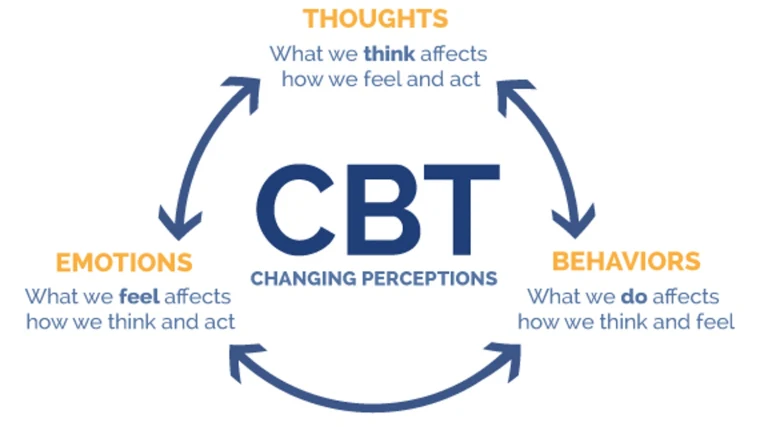Introduction
Addiction is a complex and multifaceted condition that affects millions of individuals worldwide. It can have devastating consequences on physical health, mental well-being, relationships, and overall quality of life. However, addiction is not simply a matter of weak willpower or moral failing. It is a chronic brain disease that requires understanding, compassion, and evidence-based approaches for effective treatment and recovery. In this article, we will delve into the science of addiction, exploring the underlying factors, mechanisms, and potential pathways to recovery.
What is Addiction?
Addiction is characterized by compulsive drug seeking and use despite negative consequences. It is a condition that alters the brain’s normal functioning and rewires its reward system. The reward system, primarily regulated by the neurotransmitter dopamine, plays a crucial role in reinforcing pleasurable experiences. When an individual engages in activities that stimulate the release of dopamine, such as eating or engaging in social interactions, the brain associates those experiences with pleasure, reinforcing the desire to repeat them.
Substances of abuse, including drugs and alcohol, hijack this natural reward system, leading to an artificial surge of dopamine. This flood of dopamine creates an intense feeling of euphoria and reinforces the association between substance use and pleasure. Over time, the brain adapts to the presence of the substance, reducing its sensitivity to dopamine and leading to the need for larger doses to achieve the same effect. This phenomenon is known as tolerance and is a hallmark of addiction.
The Role of Genetics
Genetics plays a significant role in addiction susceptibility. Numerous studies have shown that individuals with a family history of addiction are more likely to develop substance use disorders themselves. Genetic factors account for about 40-60% of the risk of addiction. Variations in genes involved in the reward system, metabolism of substances, and the brain’s response to stress are among the factors that contribute to an individual’s vulnerability.
The Impact of Environment
While genetics may predispose individuals to addiction, environmental factors also play a crucial role in its development. Exposure to certain environmental factors, such as childhood trauma, neglect, abuse, and peer pressure, can significantly increase the likelihood of substance abuse. Adverse childhood experiences, in particular, have been strongly linked to an increased risk of addiction later in life.
The Brain and Addiction
Addiction is fundamentally a brain disease, as substances of abuse directly affect the brain’s structure and function. Chronic drug use can lead to changes in the brain’s reward system, decision-making processes, and memory formation. These changes can persist long after substance use has ceased, making recovery a challenging and complex process.
One key brain region affected by addiction is the prefrontal cortex, responsible for executive functions such as decision-making, impulse control, and judgment. Prolonged drug use can impair the prefrontal cortex, compromising an individual’s ability to make rational choices and resist the urge to use substances. This impairment contributes to the cycle of addiction, as individuals prioritize drug-seeking behavior over other aspects of their lives.
The Path to Recovery
Recovery from addiction is a multifaceted and individualized journey. Effective treatment approaches consider the unique needs and circumstances of each individual. Here are some key components of the recovery process:
Detoxification: The first step in recovery is often detoxification, which involves clearing the body of the substance. This can be a challenging and potentially dangerous process, requiring medical supervision to manage withdrawal symptoms.
Behavioral Therapy: Various forms of therapy, such as cognitive-behavioral therapy (CBT) and motivational interviewing, are essential components of addiction treatment. These therapies help individuals understand the underlying causes of their addiction, develop coping mechanisms, and learn healthier ways of managing stress and cravings.

Medication-Assisted Treatment (MAT): MAT involves the use of FDA-approved medications, such as methadone or buprenorphine, in combination with counseling and behavioral therapy. These medications can help reduce cravings and withdrawal symptoms, enabling individuals to focus on their recovery.
Supportive Networks: Building a strong support system is vital for successful recovery. Support groups, such as Alcoholics Anonymous (AA) or Narcotics Anonymous (NA), provide individuals with a safe space to share their experiences, receive support, and learn from others who have gone through similar challenges.
Holistic Approaches: Complementary therapies, such as yoga, mindfulness meditation, and art therapy, can be valuable additions to addiction treatment. These approaches address the physical, emotional, and spiritual aspects of recovery, promoting overall well-being.
Conclusion
Understanding addiction as a chronic brain disease rooted in genetics, environment, and altered brain function is crucial for effective treatment and recovery. By recognizing addiction as a complex condition that requires evidence-based approaches, compassion, and support, we can help individuals break free from the cycle of substance abuse and rebuild their lives. The science of addiction continues to evolve, offering hope for improved prevention, intervention, and recovery strategies in the future.

